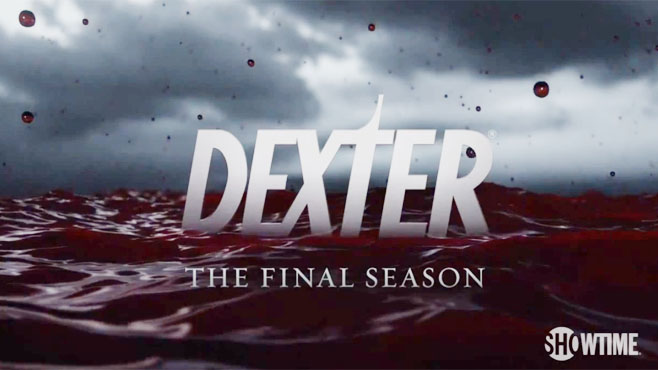*SPOILER ALERT if you’re not caught up. Don’t get pissed. I warned you.*
[youtube id=”6ckzE5vT0wc” width=”600″ height=”350″]June 30th is the night. And it’s going to happen again and again, every Sunday until September 15th.
It will all be over soon. Dexter’s fate will finally be unmasked, and viewers will see the series for what it is — but for now, we wait.
No longer is it taboo amongst Dexter fans — or should I say Dexter’s devoted until around season five and his frustrated followers thereafter — to believe that perhaps the series’ continuation better deserved to have been laid atop fifty yards of plastic wrap and cut into tiny pieces, wrapped tightly in Hefty garbage bags and tossed to the infinite blue than being dragged like deadweight through the past two seasons of soap opera-styled drama and implausible chaos.
For such a neat monster, Dexter hasn’t exactly been keeping things orderly.
It takes a certain kind of blindness to play along with the idea that Miami PD would inexplicably allow an unarmed forensics geek first entry to a crime scene or to have a police captain search for a former murderer in a shipping container without backup. Brother Sam may have tried to implant the virtue of faith into Dexter, but it was faith that killed Brother Sam. Call it miraculous, call it coincidence or luck, but that only goes so far — Deb isn’t the only one who’s stopped believing Dexter.
But while Dexter’s been getting caught, his character’s nature has been sneaking away.
For seven seasons he’s been grappling between monster and man — a Dark Passenger stalking and hunting for his identity amid a blood-red impulse. Now he’s a monster in love, letting mistakes collect like blood slides in his treasured box. Giving Deb a choice between ending his life and saving it — is that what it means to be human?
I suppose this was always Dexter’s destiny, to shift away from monster and closer to man as he finds his way to the light at the end. But as monsters disappear with the lights turned on, so are monsters created when everything dims.
Deb — caught between loyalties, she’s been the strongest element to the past couple of seasons, holding the show together with intense hysteria and a development from a workaholic cop, to murder accomplice, to a killer herself. Dexter may be on the way to finding himself as human, but Deb is caught wavering in a meltdown of a monster.
This season, I’ll be watching. I’ll be watching Dexter out of investment and self-obligation, to see his fate unfold and conclude the Dark Passenger’s long journey. But I’ll be watching Deb, the way I used to watch Dexter — when he was careful and creepy.
After all, isn’t the making of a monster more interesting than the taming of one?
[youtube id=”dy6u5rXqN5o” width=”600″ height=”350″]Amy Anderson is a Magazine Journalism major at University of Georgia. She enjoys reviewing music and film of all kinds, and hopes to add more to the experience of listening or watching by adding critical perspective and showing various sides to works that audiences love (or hate, or feel indifferent towards). As well, when writing features, she strives to offer a glimpse into the artist’s creative process or ideology through engaging stories or thoughts. Her goal is to offer audiences unseen insight on creative works while opening eyes to worthwhile music and art. Amy's current five favorite musicians— though it’s always in rotation— are Andrew Bird, Beirut, Björk, John Maus, and Milosh. Her "guilty" pleasure is Robyn— if you don’t like her, you’re probably just pretending.

